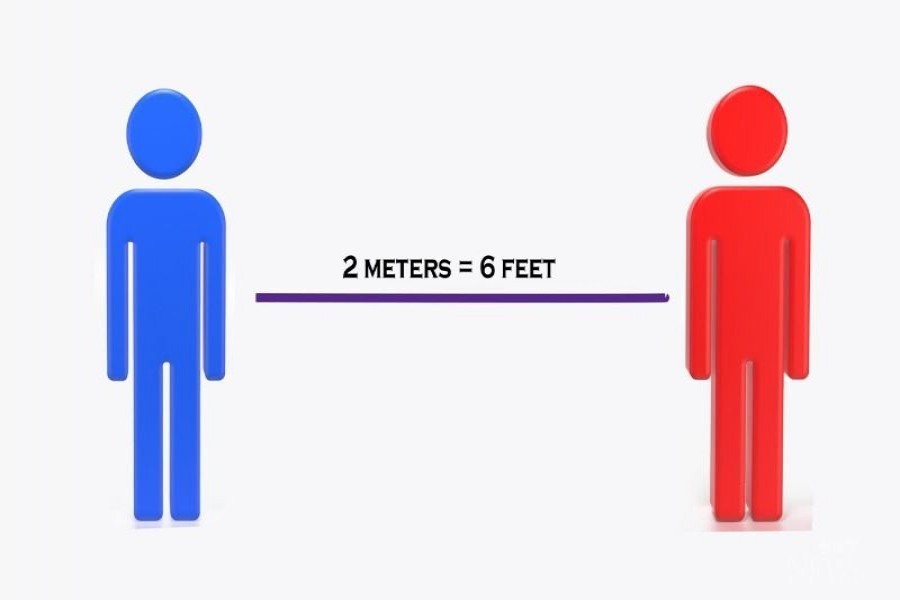
Published :
Updated :

Social distancing is one of the health advisories the World Health Organisation (WHO) has prescribed as defence against the deadly coronavirus that has so far infected nearly 2.6 million people and claimed about 0.18 million lives in 210 countries across the world.
Bangladesh, too, has not been spared by the virus. More than 3,770 people were infected and 120 died until Wednesday, according to official statistics. The actual number of infection and death would surely be higher as the testing facilities are not as extensive as has been suggested by the WHO.
Since no cure for Covid-19, caused by the novel coronavirus, could be found until now, non-medical means remain the only way to avoid the onslaught of the virus. But are most Bangladeshis listening to the WHO advice concerning non-medical measures?
It is difficult to know whether the people are washing their hands with shops frequently or using alcohol-based hand-rubs. But the majority of them, at least in urban and semi-urban areas, are wearing masks while on streets. The quality of masks, however, in most cases, is poor.
Looking at the level of compliance with an important piece of advice relating to social distancing in Bangladesh, one has enough reasons to believe that the people are not adequately conscious about it.
The pictures published in newspapers and news stories aired by the television channels do only demonstrate the total lack of awareness among the people about the danger involved in the non-maintenance of social distancing.
Kitchen markets, both wholesale and retail, are still overflowing with people. Poor men and women have been making long queues for purchasing essential items from TCB-deputed trucks in cities and towns and OMS rice trucks of the directorate of food. No social distancing is maintained by people there.
Private cars and rickshaws are plying even on the main streets of cities and towns. The members of the law enforcing agencies and Bangladesh Army have apparently been failing to keep the people off the streets. Actually, they are trying to persuade the people to stay at their homes, but the latter are not listening.
Bangladeshis are very much habituated to visiting market places almost daily and gossiping over a cup of tea at tea stalls, restaurants, social clubs etc. This is true for every class of people. Thus, it is really hard to break such an addiction, to be honest. The government has not been able to shut small tea stalls on lanes and bye-lanes across cities and towns. But non-compliance in the matters of social distancing could prove to be very costly, in terms of corona infection and, in some cases, death.
The government, on its part, seemingly, is not very serious in compelling people to maintain social distancing. The level of seriousness that the law enforcers demonstrated in the initial stage of the shutdown is now missing, to a large extent. They might be doing it under instruction.
The poor and low-income people such as rickshaw-pullers and daily wage earners are hard hit by the shutdown and they have become restive for understandable reasons. For their survival's sake they have started to come out in search of work. Any measure to contain them forcibly may backfire.
It is really a difficult situation for the government. The fast spread of community transmission of the coronavirus in recent weeks necessitates confining people to their homes and compelling them to follow social distancing rules, among others.
The urban poor, unfortunately, are not receiving enough support from the government. Some voluntary oragnisations, police and philanthropists have been distributing food items among the urban poor, but those are highly inadequate. The government should distribute food items among them urgently, of course, ensuring social distancing. The services of the members of the Bangladesh Army and law enforcing agencies could be utilised for the purpose.


 For all latest news, follow The Financial Express Google News channel.
For all latest news, follow The Financial Express Google News channel.